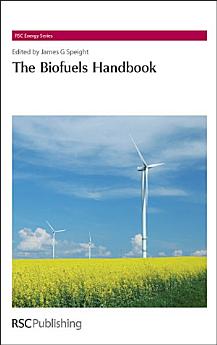Biofuels Handbook
About this ebook
About the author
Dr Speight has more than forty years of experience in areas associated with (1) the properties and recovery of reservoir fluids, including heavy oil, and tar sand bitumen, (2) refining conventional petroleum as well as heavy oil, tar sand bitumen, synthetic fuels, and biofuels, (3) the properties of fuels, synthetic fuels, and biofuels, (4) the properties, behavior, and processing of natural gas, including gas-to-liquids, (5) the properties and behavior of coal, including coal liquids, and (6) the properties and behavior of oil shale, including shale oil. Environmental effects and remediation technologies related to fossil fuel and synthetic fuel processing. He is the author of more than four hundred publications, reports, and presentations and more than thirty books and bibliographies related to fossil fuels, synthetic fuels, biofuels, fuels processing, and environmental issues. Dr Speight is visiting Professor at University of Utah, University of Trinidad and Tobago. Technical University of Denmark (Lyngby, Denmark), University of Petroleum (Beijing, China), University of Regina (Regina, Saskatchewan, Canada), and University of Akron (Akron, Ohio, USA).








